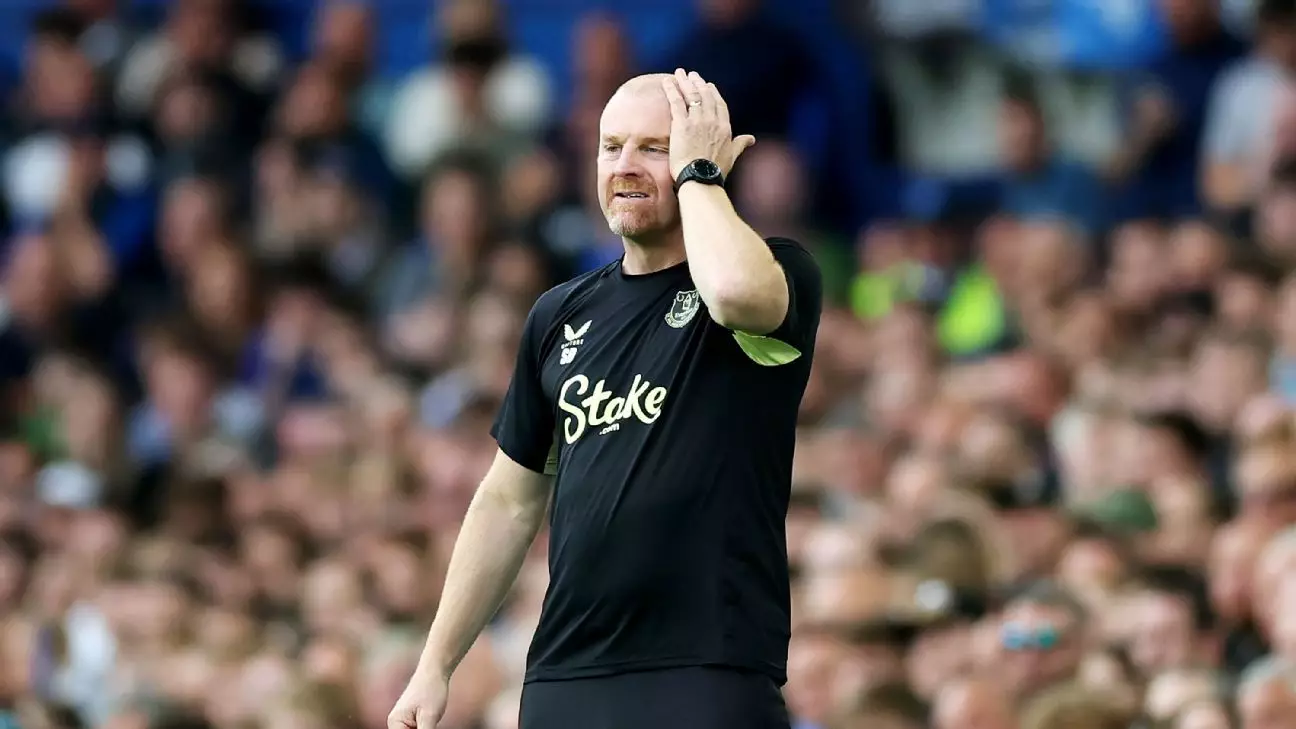As the Everton Football Club navigates through tumultuous waters, the recent announcement of a potential takeover by the Texas-based Friedkin Group has ignited a flicker of hope among its dedicated fanbase. Sean Dyche, the club’s quietly resolute manager, has offered a somewhat optimistic viewpoint, suggesting that this shift in ownership could usher in an era of stability after a prolonged period of confusion and distress. However, such optimism must be tempered with caution, given the club’s long history of instability and financial woes.
The Friedkin Group, known for owning Italian club AS Roma among various other ventures, has seen tentative discussions transform into a more concrete proposal. Dyche elaborated on the challenges the club has faced, highlighting the “unsettled ground” surrounding the management and operational decisions. Although he acknowledges that the journey toward securing a definitive takeover is still ongoing, Dyche recognizes the potential this transition holds to stabilize both the club and its supporters. Still, the immediate hurdles—both on and off the pitch—cannot be overlooked.
Despite the prospect of new leadership, Everton’s performance on the field remains disheartening. The club’s hefty financial investments, which reportedly exceed £800 million over recent years, have not translated into consistent success. As the team currently teeters precariously above the relegation zone, one must question whether the stark financial commitment has genuinely addressed the underlying issues plaguing the squad. Just one point gleaned from the opening five matches of the 2024-25 season emphasizes a troubling trend—Everton once again appears embroiled in a fierce battle to retain its status in England’s top division.
The weight of expectation rests heavily on Dyche’s shoulders, especially considering his success last season when he miraculously steered the club away from relegation despite facing significant penalties for financial irregularities. That escape was a testament to his managerial acumen, yet the current campaign’s abysmal start has left fans both puzzled and concerned. The team’s inability to secure a win thus far speaks volumes about their current form and raises serious questions about their prospects in the league.
Supporters of Everton have become accustomed to an emotional rollercoaster, marked by seasons filled with uncertainty and fleeting moments of hope. Recent developments regarding the potential takeover could either affirm their faith in brighter days ahead or leave them grappling with yet another episode of disappointment. News of a potential takeover is often shrouded in skepticism, particularly given the failed negotiations with 777 Partners and other suitors. Many fans are understandably hesitant to invest too much enthusiasm, having experienced false dawns too many times before.
For a club steeped in such rich history, with nine league titles to its name, the ongoing struggles present a stark contrast to their legacy. The fans’ deep emotional investment in the club’s fate is palpable, and the onus lies on the players and management to convert that passion into solid performances on the pitch. If the Friedkin Group can navigate the nuances of the club’s operations and foster an environment of success, they may very well become the architects of a new epoch in Everton’s storied existence.
Despite the current multitude of woes, Dyche’s unwavering commitment to his role provides a sliver of hope. As he emphasizes in his public statements, the focus remains on hard work and improvement on the field. The manager’s approach seems rooted in resilience, as he rallies his squad around the shared mission of survival and growth. The question remains whether that dedication, alongside potential changes in leadership dynamics, can ultimately reverse the club’s fortunes.
In a rapidly evolving football landscape, maintaining stability amidst chaos is a daunting task. A new ownership model could offer fresh perspectives and resources to reignite Everton’s competitive spirit. Yet, the path forward demands more than just a change in administration. It necessitates a unified effort from players, management, and supporters alike, all dwelling in the common goal of regaining the club’s stature and returning to a trajectory of success. Only through such collaborative endeavors will Everton truly chart a course from uncertainty to stability and prosperity.

Leave a Reply